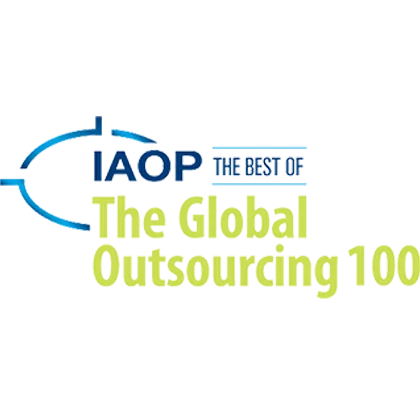DevOps development services have become an indispensable tool for businesses aiming to optimize their software delivery processes. By fostering a culture of collaboration between development and operations teams, these services ensure a seamless transition from code creation to deployment. The result? A marked reduction in deployment times, fewer errors, and a more responsive software development lifecycle.
However, the advantages continue beyond operational efficiency. Adopting DevOps practices can lead to substantial cost savings. Resource redundancies are minimized when development and operations teams work in tandem, and troubleshooting becomes more efficient. This trims operational expenses and boosts the overall return on investment (ROI) for software projects.
In this post, we'll explore the financial implications of integrating DevOps into your software delivery pipeline, demonstrating how it can be a cost-effective strategy that significantly elevates ROI.
Art of Making Software Delivery Profitable
Making software delivery profitable is an intricate art that requires a blend of strategic foresight, operational efficiency, and data-driven decision-making. Business intelligence (BI) plays a pivotal role in this landscape. By transforming vast pools of raw data into actionable insights, BI systems empower companies to make informed decisions based on historical, current, and predictive data. Departments such as sales, marketing, and operations have harnessed BI to optimize processes, measure performance against business goals, and identify new opportunities.
In the software sector, achieving profitability often becomes a focal point, especially after a company's revenues surpass significant benchmarks. These companies must continually adapt to market shifts to sustain growth, ensuring alignment with the right market segments and strategies. Companies like Zoom and Twilio have championed product-led development, while giants like Adobe have reinvented traditional categories, broadening their portfolios and leveraging cross-selling opportunities.
Beyond strategy formulation, these firms must refine their operating models continuously. Such an approach involves investing in new systems, automating functions, integrating data across the organization, and ensuring agile responses to market demands. Such a multifaceted approach to software delivery ensures profitability and fosters sustainable growth in a competitive landscape.
Noteworthy Advantages of Software Delivery with DevOps
DevOps revolutionizes software delivery by significantly reducing development time, ensuring products reach the market faster. It fosters a culture of open communication and collaboration, bridging gaps between teams. With continuous integration and continuous delivery (CI/CD), DevOps ensures seamless updates and deployments, enhancing product reliability.
This approach also emphasizes quality, minimizing defects and ensuring consistent performance. DevOps practices lead to optimal resource utilization, translating to tangible business cost savings. In the upcoming sections, we'll analyze each of these benefits in more detail, providing a comprehensive understanding of the transformative power of DevOps in software delivery.
Reduced development time and faster time-to-market
The DevOps philosophy helps streamline the software development process, minimizing bottlenecks and inefficiencies. Automating repetitive tasks and fostering real-time feedback loops accelerates the development cycle. This efficiency translates to products and updates being released more swiftly, giving businesses a competitive edge.
Rapid releases not only meet customer demands promptly but also allow for quicker iterations based on user feedback. In a dynamic market, swiftly adapting and releasing is invaluable, ensuring businesses stay ahead of competitors and align with customer needs efficiently.
Improved collaboration and communication
DevOps fosters a culture where development and operations teams unite, eliminating traditional barriers. Open dialogue becomes a cornerstone, aligning all stakeholders from a project's start to deployment. Shared objectives and tools enable swift challenge resolution, insight sharing, and solution iteration.
A transparent communication ethos ensures everyone remains informed and collaboratively works towards a shared goal. Such a harmonized environment streamlines workflows and significantly reduces errors, elevating overall productivity and the quality of project outcomes.
Continuous integration and continuous delivery (CI/CD)
CI/CD is a cornerstone of DevOps, automating the software release process and enhancing code quality. Continuous integration merges code changes regularly, detecting errors early. Continuous delivery ensures these changes are automatically tested and prepared for release, maintaining a deployment-ready state.
Together, they guarantee that software updates can be released to customers more frequently and confidently, whether features or fixes. The result is a more agile development cycle, where feedback is rapidly incorporated, and software remains consistently at its peak performance.
Enhanced quality and reliability
Fundamentally, DevOps practices prioritize rigorous testing and monitoring, ensuring the software meets the highest standards. By automating tests and integrating them into the development process, issues are identified and addressed promptly. This proactive approach reduces the likelihood of defects reaching the production stage.
Moreover, the software's reliability is significantly bolstered with consistent feedback loops and real-time performance monitoring. Users experience fewer disruptions and enjoy a product consistently delivering on its promises. DevOps transforms the software lifecycle, ensuring that quality and reliability are not mere afterthoughts but integral components of every development phase.
Resource optimization and cost savings
As an approach, DevOps introduces efficiencies that optimize resource allocation and reduce overheads. By automating repetitive tasks and streamlining workflows, teams can focus on high-value activities, reducing wasted effort and time. This efficiency translates to shorter development cycles, decreasing the costs associated with prolonged projects.
Additionally, with early error detection and reduced deployment failures, the expenses linked to troubleshooting and hotfixes diminish. Centralized tools and shared environments further cut down infrastructure and maintenance costs. Collectively, these optimizations ensure that resources are used judiciously and lead to significant cost savings, maximizing the return on investment for software projects.

Measuring ROI in DevOps Development Services
Quantifying the return on investment in DevOps is essential to validate its impact on software delivery. ROI in DevOps is gauged by evaluating both tangible and intangible benefits. Tangible metrics include reduced deployment times, decreased downtime, and fewer defects, directly translating to cost savings. On the intangible side, improved team collaboration, enhanced customer satisfaction, and increased agility offer long-term value that can lead to higher revenue and market share.
It's also crucial to consider the efficiency gains from automated processes and the reduced time-to-market for software products. Businesses can derive a clear picture of their ROI by comparing the cost of implementing and maintaining DevOps practices against these benefits. This assessment not only justifies the investment in DevOps but also provides insights for continuous improvement, ensuring that organizations extract maximum value from their DevOps initiatives.
Key Metrics for Measuring Return on Investment
To accurately gauge the effectiveness of an investment, several key metrics can be employed:
- Cost savings. Evaluate the reduction in expenses due to streamlined operations, fewer errors, and optimized resource allocation.
- Revenue growth. Track the increase in sales or income post-implementation of a strategy or investment.
- Customer retention rate. Measure the percentage of customers who continue to use a product or service over a specific period.
- Net promoter score (NPS). Gauge customer loyalty and satisfaction by assessing their likelihood of recommending your product or service to others.
- Payback period. Determine the time it takes for an investment to generate an equivalent return.
- Profit margin increase. Analyze the growth in the difference between revenue and costs.
- Operational efficiency. Assess improvements in processes, leading to faster delivery or higher quality outputs.
- Lifetime customer value. Calculate the net profit attributed to the entire future relationship with a customer.
- Market share growth. Monitor the percentage increase in sales within a market due to the investment.
By tracking these metrics, businesses can comprehensively understand their investment's effectiveness and make informed decisions for future strategies.
Examples of ROI Enhancement: A Case Study Compilation
1. Etsy

Etsy, an e-commerce platform for handmade goods, adopted DevOps practices and reported a significant reduction in the number of incidents from deployments. This led to more frequent and safer deployments, enhancing customer experience and potentially increasing sales.
2. Netflix

Netflix, a global streaming service, leveraged DevOps to manage its massive infrastructure. With the help of automated testing and deployment, they achieved faster release cycles, ensuring that new features and content reached users quickly, enhancing user retention.
3. Amazon

Amazon's deployment frequency increased, allowing them to deploy code every 11.7 seconds on average. This rapid deployment capability, achieved through DevOps practices, has been crucial for their ability to scale, innovate, and maintain a competitive edge in the e-commerce sector.
4. Target

Retail giant Target adopted DevOps and saw a 50% increase in the number of features they could deliver for their digital channels. This transformation not only improved their digital sales but also enhanced the in-store experience for customers, leading to potential revenue growth.
5. HSBC

The banking giant HSBC adopted DevOps practices to improve its software delivery speed and quality. As a result, they reported a significant reduction in production incidents, leading to improved customer trust and potential growth in their digital banking user base.
Implementing DevOps in Your Organization
Implementing DevOps in an organization requires a strategic approach encompassing cultural shifts, process changes, and adopting new tools. Here's a concise guide:
1. Assess current processes
Before diving into DevOps, evaluate your existing software development and IT operations processes. Identify bottlenecks, inefficiencies, and areas that would benefit most from automation.
2. Cultural shift
DevOps is as much about people as it is about tools. Foster a culture of collaboration between development and operations teams. Encourage open communication, shared responsibilities, and a blame-free environment.
3. Select the right tools
The DevOps toolchain can include configuration management, continuous integration, continuous delivery, and monitoring tools. Choose tools that integrate well with each other and align with your organization's needs.
4. Continuous integration and delivery (CI/CD)
Implement CI/CD pipelines to automate the code integration, testing, and deployment processes, guaranteeing that code changes are continuously merged, tested, and ready for deployment.
5. Infrastructure as code (IaC)
Adopt IaC practices to automate the provisioning and management of infrastructure, ensuring consistency and repeatability across environments.
6. Monitoring and feedback
Implement monitoring solutions to track application performance and user experience. Feedback loops are crucial for continuous improvement.
7. Training and skill development
Equip your teams with the necessary skills. This might involve formal training sessions, workshops, or bringing in external experts.
8. Iterate and improve
DevOps is a journey, not a destination. Regularly review and refine your practices based on feedback and changing business needs.
9. Security integration
Ensure that security practices are integrated into the DevOps pipeline, often referred to as DevSecOps, to address vulnerabilities early in the development cycle.
10. Measure and celebrate success
Track key metrics like deployment frequency, change failure rate, and mean time to recovery. Celebrate milestones to keep the momentum going.
By methodically implementing these steps, organizations can transition smoothly to a DevOps model, reaping benefits like faster delivery, improved collaboration, and enhanced product quality.
... if you don’t feel like implementing the DevOps standards on your own, you can consult our professionals to gain more insights or even rely on our expertise in practice to boost the ROI. So don’t hesitate to contact our DevOps engineers.
Opting for the Right DevOps Development Services
Selecting the appropriate DevOps development services ensures a seamless and efficient software delivery process. Start by understanding your organization's unique needs and challenges. Are you looking to improve team collaboration, automate specific processes, or enhance infrastructure management?
Next, consider scalability
As your organization grows, the DevOps services you choose should be able to adapt and handle increased demands. Look for flexible services that can integrate with your existing tools and platforms.
Experience matters
Opt for providers with a proven track record in implementing DevOps for businesses similar to yours. They should be able to offer insights, best practices, and tailor their services to your specific requirements.
Security is paramount
Ensure the DevOps services prioritize security measures, integrating them throughout the development lifecycle. This approach, often termed as DevSecOps, ensures vulnerabilities are detected and addressed early.
Lastly, consider the cost
While investing in quality services is essential, ensure you are getting value for your money. Analyze the potential return on investment, considering factors like improved efficiency, reduced errors, and faster time-to-market.
The right DevOps development services should align with your business goals, offer scalability, prioritize security, and provide tangible value, ensuring a successful and sustainable DevOps transformation.
Factors You Want to Consider When Choosing a Devops Service Provider
When selecting a DevOps service provider, it's crucial to weigh several key factors to ensure a successful partnership. Consider the following aspects:
- Experience and expertise. Opt for providers with a proven track record in implementing DevOps for businesses like yours.
- Scalability. Ensure the provider can handle your growth and increased demands over time.
- Integration capabilities. The service should integrate seamlessly with your existing tools and platforms.
- Security measures. Prioritize providers that embed security throughout the development lifecycle, emphasizing early vulnerability detection.
- Cost-effectiveness. While quality is paramount, ensure you are getting value for your investment.
- Customization. The provider should tailor their services to your specific requirements and challenges.
- Support and training. A good provider offers ongoing support and training to ensure successful implementation and adaptation.
- Client testimonials. Check reviews and feedback from other businesses to gauge the provider's reliability and effectiveness.
By considering these factors, businesses can make an informed decision, ensuring a successful partnership with their chosen DevOps service provider.
Choose Program-Ace: Your Ultimate DevOps Partner
Our custom software development company offers tailored DevOps development services designed to meet your specific needs. The Program-Ace team combines deep expertise with practical experience, ensuring seamless processes, efficient workflows, and a resilient infrastructure for your projects.
Choosing to collaborate with us means entrusting your projects to a team that understands the intricacies of modern software delivery. If you are in search of a partner who aligns with your objectives and delivers actionable DevOps solutions, contact us. Together, we can optimize your software delivery for maximum efficiency and results.










